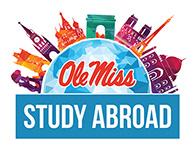Announcements : Omicron Variant and Study Abroad Planning
Announcement: Omicron Variant and Study Abroad Planning
Please see the full message for information on study abroad in light of the new Omicron variant.
The UM Study Abroad Office is closely following the developments regarding the newly WHO-designated Omicron variant of COVID-19 and the associated tightening of travel restrictions by a number of countries. Infectious disease experts advise that it will take approximately two weeks of studying the new strain to provide definitive information about the severity of, and the effectiveness of vaccines against, the Omicron variant. As the world collectively waits for more information, UM will not be making any changes to upcoming study abroad programming.
What We Know and Don’t Yet Know about Omicron
At present, there is very little known about the Omicron variant. More data collection and laboratory testing are required to better understand the new strain’s infectivity, severity, and ability to evade the immune protection provided by existing vaccines.
Based on the rapid spike in infections in South Africa, early indications are this variant is more infectious than the original virus and previous variants (i.e., Alpha and Delta). However, initial information being released from physicians in South Africa suggests that the new Omicron variant may only cause “mild symptoms” without many of the more serious symptoms associated with the original and earlier variants. The World Health Organization (WHO) has reported zero Omicron deaths so far.
The Omicron variant has spread widely beyond southern Africa with new cases identified in the UK, Portugal, Czech Republic, Canada, Netherlands, Israel, Germany, Italy, Belgium, Austria, Hong Kong, Australia, and others. Many experts, including Dr. Anthony Fauci, believe it is likely the Omicron variant is already in the United States and will likely soon spread further globally, crowding out the Delta variant which currently makes up 99% of the world’s new cases.
Travel Restrictions
The tightening of travel restrictions globally in response to Omicron is concerning and UM is following developments closely. A handful of countries, including Israel, Morocco, and Japan, have temporarily banned all incoming flights. Many other countries, including the United States, have imposed restrictions on flights originating in southern African countries (South Africa, Botswana, Zimbabwe, Namibia, Lesotho, Eswatini, Mozambique, and Malawi). Most of the countries that have imposed travel restrictions have set a two-week expiration/review date to allow scientists to collect more information on the severity of the Omicron variant before further decisions are made.
Full Vaccination and Vaccine Boosters Strongly Encouraged
While the world awaits further data on Omicron and its impacts, we at the UM Study Abroad Office continue to prepare to welcome students to transformative and enriching international education experiences at locations across the globe in the coming year.
In the meantime, we encourage all students who will be participating in a UM study program abroad to be fully vaccinated against COVID-19 prior to departure. If it has been more than six months since their single dose of Johnson and Johnson vaccine or their second dose of the Pfizer or Moderna vaccine, the UM Study Abroad Office recommends getting a booster prior to departure. Students should not rely on being able to get booster shots abroad as this is far from certain in most cases.
Even before Omicron, many study abroad programs required all study abroad participants to be fully vaccinated to minimize the health risk to participants, staff, and our worldwide communities. And a booster shot has become a requirement in Italy and France for a valid health pass, which is needed to enter restaurants, cafes, and museums, and other public venues. Other countries are likely to follow suit; the European Union has proposed that all vaccine certificates, including the CDC or other similar vaccination document from the United States, have a maximum validity of 270 days.
This means that a U.S. student who was vaccinated more than 270 days ago would no longer be considered as being in possession of a valid vaccination certificate and would be subject to the same restrictions as an unvaccinated individual. In many cases, these restrictions on access to hospitality, leisure, culture, sports, and other venues, would impede a student’s ability to participate in their study abroad program.
As always, we are available for questions and concerns. Please feel free to schedule an in-person or virtual meeting from our staff page, or give us a call at 662-915-1508.
Sincerely,
UM Study Abroad Office
